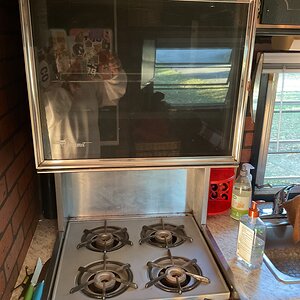Joe Hogan
RVF Supporter
- Joined
- Nov 3, 2019
- Messages
- 3,420
- Location
- Florida
- RV Year
- 2024
- RV Make
- Newmar
- RV Model
- Dutch Star 4311
- RV Length
- 43
- Chassis
- Spartan
- Engine
- Cummins
- TOW/TOAD
- 2018 Ford Flex
- Fulltimer
- No
StarLink fair use policy.
https://starlink.com/
https://support.starlink.com/?topic=0889717a-e223-fb7d-f6b5-4369b306a22e#
WHAT IS STARLINK'S FAIR USE POLICY?
TO ENSURE OUR CUSTOMER BASE IS NOT NEGATIVELY IMPACTED BY A SMALL NUMBER OF USERS CONSUMING UNUSUALLY HIGH AMOUNTS OF DATA, THE STARLINK TEAM IS IMPLEMENTING A FAIR USE POLICY FOR RESIDENTIAL CUSTOMERS IN THE US AND CANADA AND ALL BUSINESS/MARITIME CUSTOMERS BEGINNING NO EARLIER THAN APRIL 2023.
UNDER THE FAIR USE POLICY, CUSTOMERS WILL BE PROVIDED WITH UNLIMITED DATA, AND WILL START EACH MONTH WITH PRIORITY ACCESS, WHICH MEANS THEIR DATA USAGE WILL BE PRIORITIZED DURING TIMES OF NETWORK CONGESTION.
IF A CUSTOMER EXCEEDS THE AMOUNT OF PRIORITY ACCESS OUTLINED IN THEIR SERVICE PLAN ON A MONTHLY BASIS, THEY WILL AUTOMATICALLY BE SWITCHED TO BASIC ACCESS. USERS WILL BE ABLE TO OPT-IN TO AUTOMATIC UPGRADES BACK TO PRIORITY ACCESS FROM THEIR ACCOUNT PAGE.
YOU CAN NOW START TO MONITOR YOUR DATA USAGE ON YOUR ACCOUNT PAGE AND IN THE STARLINK APP. FOR MORE DETAILS ON SERVICE PLAN, SEE STARLINK’S FAIR USE POLICY HERE.
RELATED QUESTIONS:
WHAT IS PRIORITY ACCESS?
WHAT IS BASIC ACCESS?
STARLINK © 2023
CAREERS|SATELLITE OPERATORS|PRIVACY & LEGAL
STARLINK IS A DIVISION OF SPACEX. VISIT US AT SPACEX.COM
https://starlink.com/
https://support.starlink.com/?topic=0889717a-e223-fb7d-f6b5-4369b306a22e#
WHAT IS STARLINK'S FAIR USE POLICY?
TO ENSURE OUR CUSTOMER BASE IS NOT NEGATIVELY IMPACTED BY A SMALL NUMBER OF USERS CONSUMING UNUSUALLY HIGH AMOUNTS OF DATA, THE STARLINK TEAM IS IMPLEMENTING A FAIR USE POLICY FOR RESIDENTIAL CUSTOMERS IN THE US AND CANADA AND ALL BUSINESS/MARITIME CUSTOMERS BEGINNING NO EARLIER THAN APRIL 2023.
UNDER THE FAIR USE POLICY, CUSTOMERS WILL BE PROVIDED WITH UNLIMITED DATA, AND WILL START EACH MONTH WITH PRIORITY ACCESS, WHICH MEANS THEIR DATA USAGE WILL BE PRIORITIZED DURING TIMES OF NETWORK CONGESTION.
IF A CUSTOMER EXCEEDS THE AMOUNT OF PRIORITY ACCESS OUTLINED IN THEIR SERVICE PLAN ON A MONTHLY BASIS, THEY WILL AUTOMATICALLY BE SWITCHED TO BASIC ACCESS. USERS WILL BE ABLE TO OPT-IN TO AUTOMATIC UPGRADES BACK TO PRIORITY ACCESS FROM THEIR ACCOUNT PAGE.
YOU CAN NOW START TO MONITOR YOUR DATA USAGE ON YOUR ACCOUNT PAGE AND IN THE STARLINK APP. FOR MORE DETAILS ON SERVICE PLAN, SEE STARLINK’S FAIR USE POLICY HERE.
RELATED QUESTIONS:
WHAT IS PRIORITY ACCESS?
WHAT IS BASIC ACCESS?
STARLINK © 2023
CAREERS|SATELLITE OPERATORS|PRIVACY & LEGAL
STARLINK IS A DIVISION OF SPACEX. VISIT US AT SPACEX.COM












